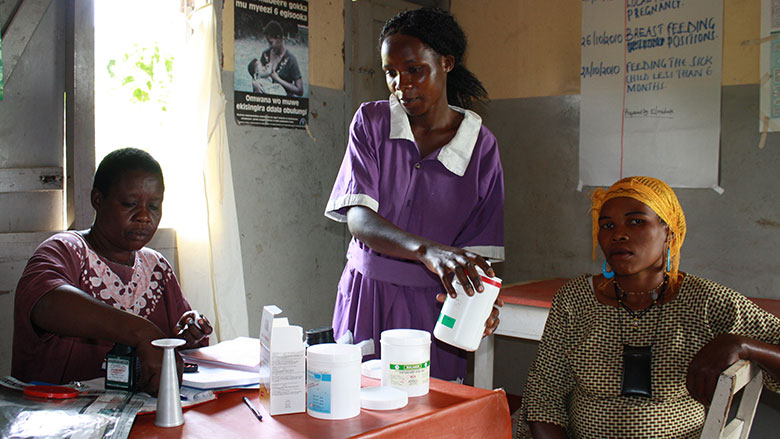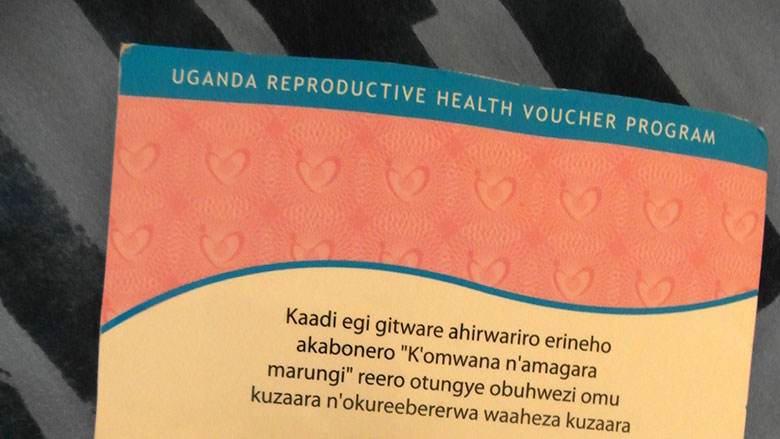KANUNGU, May 30, 2017 - Anna Katushabe’s daughter came into the world in early May by Caesarean-section delivery, and so both mother and daughter spent longer than expected in Rugyeyo Community Hospital. Ordinarily, the longer stay would have been a worry for the young mother; for Anna, however, her C-section delivery cost only UShs 4,000, just over US$1.
The secret to keeping safe childbirth cheap lies in an innovative voucher programme that gives pregnant women affordable, effective medical attention. When she was four months pregnant, Anna bought a reproductive health care voucher for UShs 4,000. This gave her access to a health facility throughout her pregnancy, and she knew it would cover the delivery and medical care for six weeks after her baby’s birth as well.
Rugyeyo hospital is in Kanungu District, 260 miles (420km) from Kampala on Uganda’s border with the Democratic Republic of the Congo. A normal (vaginal) birth usually costs UShs 46,000 (US$13) at the hospital, while Caesarean births cost UShs 316,000 (US$88).
Uganda was the first country in Eastern Africa to use these health vouchers, starting with a pilot programme in 2006.
Funded by KfW, the German Development Bank, the pilot project, Healthy Life, subsidised the cost of treating sexually transmitted infections. The scheme expanded in 2008, when KfW and the World Bank’s Global Partnership on Output-Based Aid gave it US$6.2 million to subsidize safe deliveries as well.
The program in south-western Uganda was very successful, helping with nearly 66,000 deliveries, 130% of its initial target. Uganda’s Ministry of Health then expanded it to other districts through its Reproductive Health Voucher Project, which was funded with US$13.3 million from the Swedish International Development Agency (SIDA) through the Global Partnership on Output Based Aid (GPOBA).


